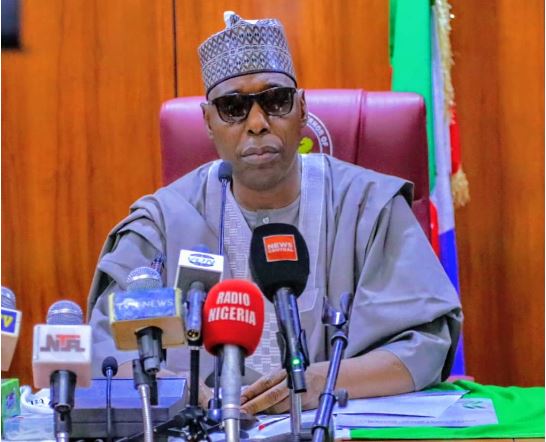Borno State, located in northeastern Nigeria, has been plagued by the persistent threat of terrorism, particularly from the insurgent group Boko Haram. The recent attacks on villages within the Chibok Local Government Area underscore the ongoing challenges faced by the region and its people. Governor Babagana Zulum, addressing a security council meeting, confirmed the displacement of 74 households, the tragic loss of five lives, and injuries to two others. These attacks, targeting the villages of Bamzir, Njilang, Shikarkir, and Yimirmugza, also resulted in significant infrastructural damage, including the destruction of five churches, market stalls, and properties valued at millions of naira. The governor’s report highlights the devastating human and economic impact of these attacks, further destabilizing communities already struggling to recover from years of conflict.
Chibok, tragically known for the 2014 kidnapping of over 200 schoolgirls, has become a symbol of the region’s vulnerability to terrorist attacks. Governor Zulum expressed profound concern over the escalating wave of terrorism in the Borno South Senatorial District, emphasizing the need for decisive military action to quell the insurgency. While acknowledging the significant efforts of security forces in maintaining control over much of the region, he stressed the necessity of enhanced tactical measures to address vulnerabilities and prevent further attacks. The governor’s call for a shift from a defensive to an offensive strategy reflects the urgency of the situation and the need for a more proactive approach to combating terrorism in the area.
The governor’s emphasis on community resilience highlights the crucial role of local populations in confronting the terrorist threat. He urged residents to remain united and resolute, recognizing the importance of community cohesion in withstanding the psychological and social impact of terrorism. Building community resilience involves fostering social support networks, promoting psychological well-being, and empowering local communities to participate actively in security initiatives. This collaborative approach, involving both security forces and local residents, is essential for creating a more secure and stable environment.
The attacks in Chibok underscore the ongoing challenges in addressing the root causes of terrorism in Borno State. Factors such as poverty, unemployment, and lack of access to education and opportunities contribute to the vulnerability of communities to extremist ideologies. Sustainable peace and security require not only military interventions but also comprehensive strategies that address these underlying socio-economic factors. This includes investments in education, job creation, and community development programs that empower individuals and communities to resist the allure of extremist groups.
The displacement of 74 households in Chibok further exacerbates the humanitarian crisis in Borno State. The forced displacement of communities disrupts social structures, livelihoods, and access to essential services. Providing adequate shelter, food, water, healthcare, and psychosocial support to displaced populations is crucial for mitigating the negative impacts of displacement. Furthermore, supporting the safe and dignified return of displaced communities to their homes is essential for long-term stability and recovery.
The ongoing threat of terrorism in Borno State requires a multi-faceted approach that combines security measures with long-term development initiatives. Strengthening security forces, enhancing intelligence gathering, and adopting proactive counter-terrorism strategies are essential for disrupting terrorist networks and preventing further attacks. However, achieving lasting peace requires addressing the underlying socio-economic drivers of conflict, promoting inter-community dialogue, and fostering a culture of peace and tolerance. The international community also plays a vital role in supporting the Nigerian government’s efforts to counter terrorism and address the humanitarian crisis in Borno State. This includes providing financial assistance, technical expertise, and capacity-building support to strengthen local institutions and build community resilience.














